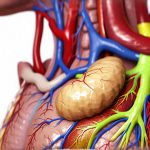Bloating is a common digestive complaint that many people experience at some point in their lives. It’s often characterized by a feeling of fullness, tightness, and pressure in the abdomen, as if your stomach is overly full or swollen. While occasional bloating after a large meal isn’t usually cause for concern, frequent or severe bloating associated with indigestion can be uncomfortable and disruptive to daily life. Understanding the potential causes and effective management strategies can significantly improve your comfort and wellbeing.
Indigestion, also known as dyspepsia, refers to discomfort in the upper abdomen. It’s not a disease itself but rather a collection of symptoms that signal something isn’t working quite right within the digestive system. Bloating frequently accompanies indigestion, creating a frustrating cycle of discomfort. This article will explore recognizing bloating related to indigestion and practical ways to manage it, focusing on lifestyle adjustments and over-the-counter options.
Understanding the Connection Between Bloating & Indigestion
Bloating and indigestion are often intertwined. Indigestion can disrupt the normal digestive process, leading to gas production and accumulation in the gastrointestinal tract. This buildup of gas is a primary cause of bloating. Furthermore, impaired digestion may result in undigested food fermenting in the gut, further exacerbating bloating symptoms. Identifying triggers is crucial for effective management.
Common Causes of Bloating with Indigestion
Many factors can contribute to bloating and indigestion. Dietary choices play a significant role; certain foods are more likely to trigger gas production or slow down digestion. Rapid eating habits, swallowing excess air, stress levels, and underlying digestive conditions can also be contributing factors. It’s important to consider these various possibilities when attempting to identify the root cause of your discomfort.
Identifying Your Specific Triggers
Keeping a food diary is an excellent starting point for pinpointing potential triggers. Record everything you eat and drink, along with any associated symptoms like bloating or indigestion. Note the timing of symptoms relative to meal consumption. Common culprits include beans, lentils, broccoli, cabbage, carbonated beverages, dairy (for those lactose intolerant), artificial sweeteners, and fatty foods. Identifying patterns in your diary can help you modify your diet accordingly.
Lifestyle Adjustments for Relief
Simple lifestyle changes can often make a substantial difference. Eating smaller, more frequent meals instead of large ones reduces the burden on your digestive system. Take your time while eating and chew food thoroughly to aid digestion and minimize air swallowing. Staying hydrated is also crucial; water helps move food through the digestive tract. Regular physical activity promotes healthy gut motility, reducing bloating and discomfort. Stress management techniques such as deep breathing exercises or yoga can also be beneficial, as stress often exacerbates digestive issues.
Over-the-Counter Options for Symptom Management
Several over-the-counter remedies may offer temporary relief from bloating and indigestion. Simethicone helps reduce gas bubbles in the stomach and intestines, while alpha-galactosidase (found in products like Beano) can help break down complex carbohydrates in foods that cause gas. Antacids neutralize stomach acid, which can alleviate heartburn and indigestion. However, these are generally intended for occasional use and shouldn’t replace addressing underlying causes or seeking professional advice if symptoms persist or worsen. It’s important to read product labels carefully and consult with a healthcare provider about potential interactions or suitability for your individual health needs.
It is important to remember that this information is not intended as medical advice, diagnosis, or treatment. Always seek the guidance of a qualified healthcare professional with any questions you may have regarding your health or medical condition. Self-treating can be dangerous and could delay proper medical attention. If bloating is severe, persistent, accompanied by other concerning symptoms (such as unintended weight loss, blood in stool, or severe abdominal pain), or doesn’t improve with lifestyle changes and over-the-counter remedies, it’s essential to consult a doctor to rule out any underlying medical conditions. They can provide an accurate diagnosis and recommend appropriate treatment options tailored to your specific needs.


















